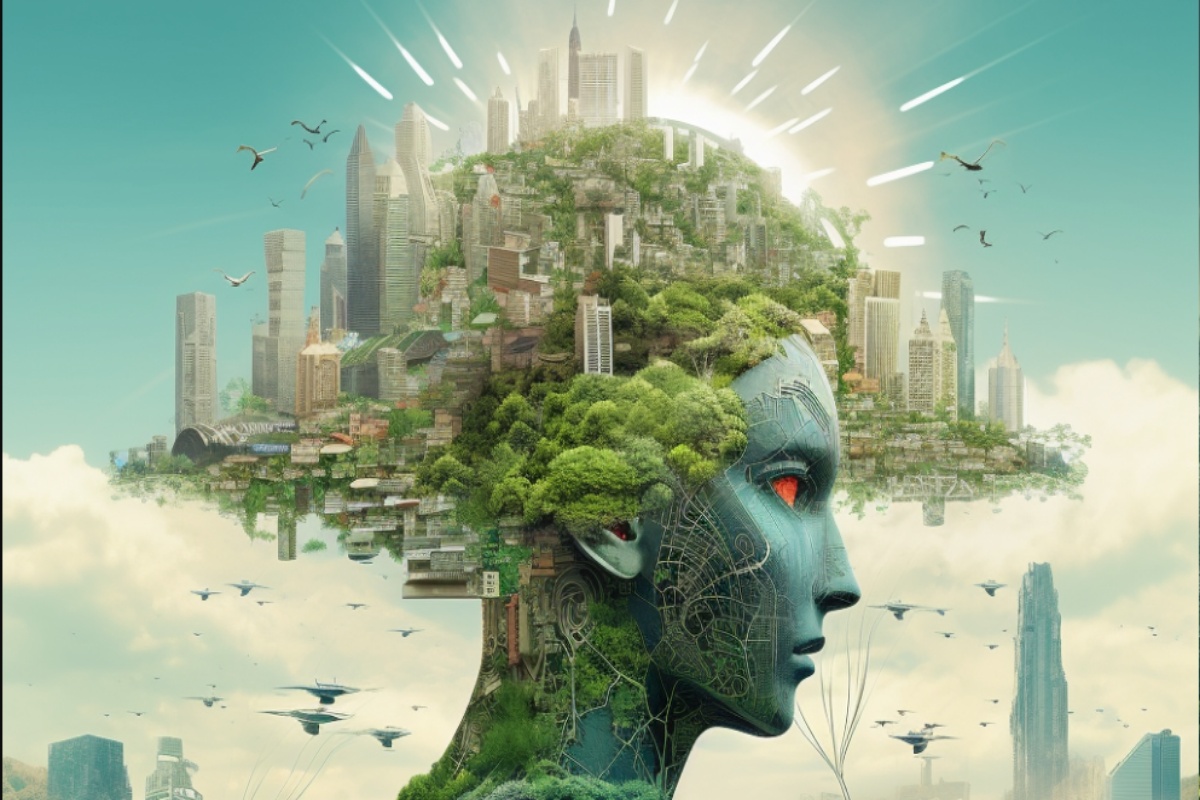As the world grapples with the accelerating impacts of climate change, environmental degradation, and dwindling natural resources, green technology — or green tech — has emerged as a beacon of hope. It represents the fusion of innovation and sustainability, offering solutions to reduce our ecological footprint while enhancing quality of life. But what does the future hold for green tech? How will it evolve, and what transformative innovations lie on the horizon?
In this blog, we delve into the exciting trajectory of green technology, examining its current status, emerging trends, and the revolutionary potential it holds for the future.
What Is Green Tech?
Green tech refers to the application of technology and science to create products and services that are environmentally friendly, reduce emissions, conserve natural resources, and promote sustainability. Its scope is vast, encompassing:
- Renewable energy (solar, wind, hydro, geothermal)
- Energy storage
- Electric vehicles (EVs)
- Smart grids and smart cities
- Green buildings
- Carbon capture and storage
- Recycling and waste management
- Sustainable agriculture
- Eco-friendly manufacturing
The State of Green Tech Today
Green tech has made significant strides over the past two decades. Solar and wind power are now cheaper than many fossil fuels in numerous regions. Electric vehicles are becoming mainstream. Countries are adopting circular economy practices and investing in sustainable infrastructure.
However, challenges remain. Green technologies often face high upfront costs, regulatory hurdles, and resistance from entrenched industries. To overcome these obstacles, innovation, collaboration, and supportive policies are crucial.
Key Drivers of the Green Tech Revolution
1. Climate Urgency
The increasing frequency and severity of climate-related disasters have spurred global urgency. The 1.5°C warming limit set by the Paris Agreement is driving nations, corporations, and individuals to adopt greener solutions.
2. Government Policy and Regulation
Governments worldwide are implementing stricter environmental regulations and offering incentives for sustainable practices — from carbon taxes to clean energy subsidies.
3. Corporate ESG Commitments
Environmental, Social, and Governance (ESG) criteria are now central to investment decisions. Companies are being held accountable for their environmental impact, pushing them to embrace green tech.
4. Technological Advancements
Breakthroughs in AI, IoT, biotechnology, and materials science are enabling smarter, cleaner, and more efficient green solutions.
Emerging Trends in Green Tech
1. Green Hydrogen
Hydrogen produced using renewable energy can serve as a clean fuel for industries that are hard to decarbonize, like steel, cement, and aviation. Massive investments are flowing into hydrogen infrastructure globally.
2. Next-Gen Batteries
Energy storage is vital for renewable adoption. Advances in solid-state batteries, flow batteries, and new chemistries like sodium-ion or lithium-sulfur promise longer lifespans and lower costs.
3. Carbon Capture, Utilization, and Storage (CCUS)
CCUS technologies capture carbon dioxide from industrial processes or the air and either store it underground or repurpose it. Although still expensive, it’s considered essential for achieving net-zero targets.
4. Smart Grids and Decentralized Energy
Digital technologies and AI are making energy systems more resilient and efficient. Microgrids and peer-to-peer energy trading platforms empower communities to manage energy locally.
5. Sustainable Agriculture and Food Tech
Vertical farming, precision agriculture, lab-grown meat, and plant-based proteins are transforming how we produce and consume food — with less land, water, and emissions.
6. Circular Economy Innovations
Recycling, upcycling, and sustainable product design are gaining traction. Companies are creating closed-loop systems to minimize waste and reuse materials.
7. Green Buildings and Urban Planning
Net-zero buildings that produce as much energy as they consume are becoming the gold standard. Sustainable urban planning integrates nature, reduces car dependency, and promotes energy efficiency.
The Role of Artificial Intelligence in Green Tech
AI is proving to be a powerful ally in the green revolution:
- Optimizing energy consumption in smart homes and buildings
- Predicting weather patterns to improve renewable energy forecasting
- Monitoring emissions through satellite imagery and IoT sensors
- Automating agricultural processes for precision farming
- Enhancing recycling efficiency through robotic waste sorting
By harnessing data and machine learning, AI can dramatically improve the efficiency and scalability of green technologies.
The Path Forward: Challenges and Opportunities
Challenges:
- High initial costs of deployment
- Lack of infrastructure, especially in developing regions
- Regulatory and political barriers
- Public awareness and adoption hesitancy
Opportunities:
- Job creation in new green industries
- Energy independence through renewables
- Health benefits from reduced pollution
- Innovation leadership and competitive advantage for early adopters
Vision for 2030 and Beyond
By 2030, green tech could be deeply integrated into everyday life. Some visions of the future include:
- Homes powered entirely by solar and battery storage
- Cities with zero-emission public transport fleets
- Factories with net-zero emissions and closed-loop waste systems
- Widespread adoption of plant-based and lab-grown food
- AI-driven ecosystems managing energy, water, and waste
This future is not just possible — it is necessary. The coming decade will determine whether we can decouple economic growth from environmental harm.
Conclusion: A Call to Action
The future of green tech is not just a technological challenge — it’s a collective human endeavor. Whether you’re a policymaker, entrepreneur, engineer, investor, or consumer, your role matters. Embracing green technology means embracing innovation, responsibility, and a vision for a better world.
Let’s reimagine what’s possible and build a future where progress and sustainability go hand in hand.
Green tech isn’t just the future — it’s the only future that makes sense.

